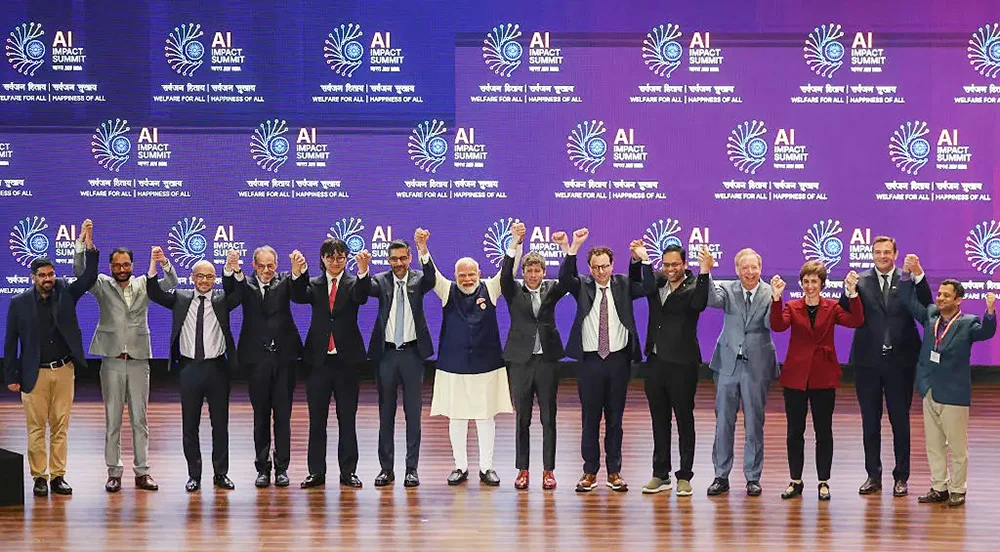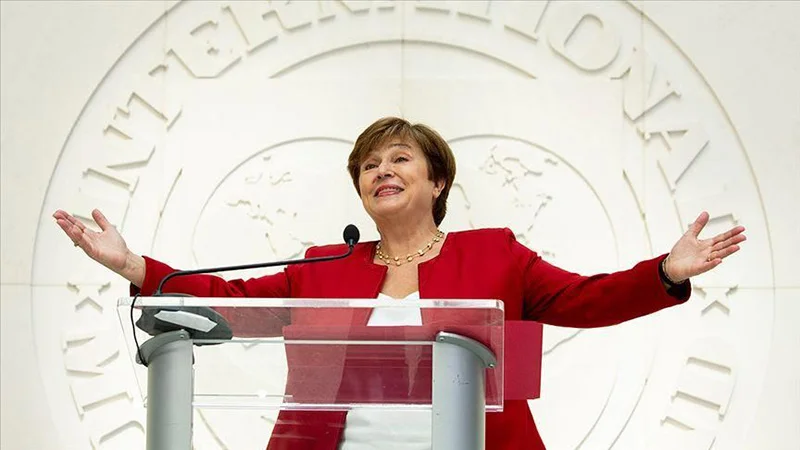Features
China’s Linearized Polity

by Kumar David
Last week I used the adjective linearized to refer to China’s polity and upon reflection came to realise that it carried more substance than I had realised. I am using ‘polity’ to include organisation of the state, structure of constitution and certain socio-political aspects of society and ‘linearized’ to indicate political tractability and homogeneity. In the case of China, for the purposes of this essay, I touch on the CCP, the Chinese economic system and the unique Chinese social-family arrangement. Quite a handful you might say. Well yes, but there are many novel elements to the subject. Interestingly the PRC Constitution [Ref. 1] does not mention the 90 million member CCP by name anywhere but Article 1 describes China as “a socialist state under the people’s democratic dictatorship led by the working class and based on an alliance of workers and peasants” which alliance can be interpreted as the Party. Technically China is not a one party state; there are eight recognised minor parties but the truth is that de facto all power is focussed in the hands of the CCP. I am throughout this essay seeking to be descriptive rather than judgemental and will avoid explicit criticism of the one-party state, economic strategy or social forms.
The opening paragraph of the Constitution of the Chinese Communist party reads as follows: “The Communist Party of China is the vanguard both of the Chinese working class and of the Chinese people and the Chinese nation. It is the core of leadership for the cause of socialism with Chinese characteristics and represents the development trend of China’s advanced productive forces, the orientation of China’s advanced culture and the fundamental interests of the overwhelming majority of the Chinese people” [Ref. 2]. The Party therefore claims its role boldly.
If I were to attempt to laboriously summarise the formal structures of state and Party I would be digressing too far from my stated subject. Only a few words will have to suffice. Constitutionally, the National People’s Congress (parliament) is the highest organ of state power and most legislation is presented to it by the State Council (cabinet) or by the CCP Politburo Standing Committee of 7 to 9 members which body drives most legislation. Is China a dictatorship of the PB or its General Secretary, currently Xi Jinping? No, in my view the source of ultimate power is a caucus of several thousand communists in central and regional leaderships of the CCP. (I am not able to estimate, maybe ten thousand). Any General Secretary if he loses this base is a goner. The distribution, exercise and structure of power is simpler than in liberal polities. Recall the complexities and convolutions when transacting, legislating and funding anything in the US and the horse-dealing the Executive Branch suffers before anything is implemented. For example think Obama’s Health Care legislation and the Republican castrations it suffered. I don’t need to put much effort into convincing readers that in China political execution is homogeneous and linear. The fall of Jack Ma and other corporate titans in the last twelve months is proof that in China money does not talk, the Party does.
China does not sport a jungle of competing political entities and lacks the many-sided relationships between politics and the domains of money and corporate ownership. This makes for simplicity but at the same time it makes foreign policy naïve. China often backs losers such as Pol Pot’s Khmer Rouge, the Burmese Junta, the Naxalites in India, UNITA in Angola and I daresay the Rajapaksa clan in Sri Lanka will in time prove to be a bad bet. An ugly botch was the invasion of Vietnam in 1979; pointless, achieved nothing. The most egregious Chinese foreign policy blunder was to attack India in 1962. I say this without taking sides in the dispute about the demarcation of the Sino-Indian border. The point I am making is that the unsophisticated nature of Chinese foreign policy is related to simplistic polity. The US State and Defence Departments and CIA have a sophisticated approach that makes use of academia, think-tanks and private foundations. They assimilate and use views that are even opposed to the official line. They fund naive researchers. In China woe unto those who contradict the party line. See a recent report in CNN as an example. https://edition.cnn.com/2021/03/26/china/xinjiang-china-us-wolf-warrior-patriotism-intl-hnk/index.html
The economy is not a rigid and inflexible state directed monolith as in the former USSR although directive principles regarding where to go and what to do are laid down by the Party or the state. Most impressive is that the firm decisions of the Party-State allowed China to pull 700 million people out of poverty in the last 50 years. This achievement, unparalleled in world history, was facilitated by a ‘directed’ economic model sans the dense foliage of a forest of crisscross financial, banking and corporate linkages that overflow in American and Western capitalism and in finance capital. The deep pockets of American dominated global capitalism and the ubiquitous role of the US dollar make the foliage even lusher. For better or for worse, the Chinse economy is comparatively sparse and simple in its interconnections. One can say that this has kept it effective in achieving social objectives such as mass poverty alleviation. In economics, unlike in foreign policy, the Chinese intelligentsia and academia and the Party have become sophisticated. This has contributed to much success in economics, to an extent in finance, and enabled successes over Trump Era US economic Neanderthals.
To complete the picture I need to mention the theory of land ownership. All urban land belongs to the state and is leased out to developers and citizens usually for 99 years. This applies to Hong Kong as well, except for traditional lands owned by the “Kuks”, pre-British era residents in the remote (non-urban) New Terrorises. Rural land in China is owned by collectives which allocate farming rights to households – this means that land alienation (sale) is not permitted. In the context of tens of millions migrating from the countryside to the cities in recent decades this has been a non-issue.
A crucial feature of development is the role and power of Provincial Governments which play a huge part in economic expansion and infrastructure expansion, though they are politically subservient to the Provincial Party. Administratively the country is split into provinces, prefectures, counties, townships, and villages. The Party is foremost and present at every level and in all institutions, and thus ensures that political and national objectives are not flouted. It is reasonable to say that relations between the state, economic institutions, provincial governments and their economies on the one side, and the Party and the Central Government on the other are linear and homogeneous.
I have touched on the political system and the economy and these closing paragraphs are on society. I am on slippery ground in suggesting that social relations too are simpler, linear and more homogeneous in China than in say India or in the atomised Western societies and families where capitalist values rule. Nevertheless let me push on; perhaps others will fill these out. My first thought is that family and personal moral codes and mores that govern life in China promote homogeneity and collectivism while the “myself and me alone” culture of captivity to the market encourages an atomised social and familial ethos in capitalist nations. The extended family structure is very strong in China, Taiwan, Hong Kong and I guess in Singapore and among Chinese in Indonesia and Malaysia. Every one of my friends and colleagues in Hong Kong “pays” a certain proportion of his/her monthly salary to parents. Come sun come rain this happens. The elderly are not neglected and are provided for within available means; this is common in other Asian societies such as Lanka but I found a stronger explicit commitment among the Chinese. This I believe comes from the Confucian moral code which is as deep among them as Buddhism ought to be among our people but is not. In advanced liberal-capitalist societies the erosion goes further and the pervasive ethic worships personal ambition, individualism, freedom of the wild ass and selfishness.
Confucianism lays emphasis on hierarchy, loyalty, discipline and filial duty. This I believe has a spill over into the political domain. Loyalty to the government and even the party is more natural in China than it was among Soviet Russians and East Germans, many of whom resented if not hated the one-party state. A uniform and homogenous – linearized – arrangement comes naturally to Chinese people. I don’t think my Hong Kong friends will resent these remarks and most may agree. For obvious reasons I am picking my way round these nettles with great caution since I have no depth of knowledge in sociology or psychology. It is from a political perspective that I make the comment that cultural mores and social attitudes in China complement prevailing political and economic systems in favouring a more uniform ethos than in the capitalist West.
References
1. The Constitution of the PRC. http://www.npc.gov.cn/zgrdw/englishnpc/Constitution/node_2825.htm
2. The Constitution of the CPC. https://fas.org/irp/world/china/docs/const.html
Features
Digital transformation in the Global South

Understanding Sri Lanka through the India AI Impact Summit 2026
Artificial Intelligence (AI) has rapidly moved from being a specialised technological field into a major social force that shapes economies, cultures, governance, and everyday human life. The India AI Impact Summit 2026, held in New Delhi, symbolised a significant moment for the Global South, especially South Asia, because it demonstrated that artificial intelligence is no longer limited to advanced Western economies but can also become a development tool for emerging societies. The summit gathered governments, researchers, technology companies, and international organisations to discuss how AI can support social welfare, public services, and economic growth. Its central message was that artificial intelligence should be human centred and socially useful. Instead of focusing only on powerful computing systems, the summit emphasised affordable technologies, open collaboration, and ethical responsibility so that ordinary citizens can benefit from digital transformation. For South Asia, where large populations live in rural areas and resources are unevenly distributed, this idea is particularly important.
People friendly AI
One of the most important concepts promoted at the summit was the idea of “people friendly AI.” This means that artificial intelligence should be accessible, understandable, and helpful in daily activities. In South Asia, language diversity and economic inequality often prevent people from using advanced technology. Therefore, systems designed for local languages, and smartphones, play a crucial role. When a farmer can speak to a digital assistant in Sinhala, Tamil, or Hindi and receive advice about weather patterns or crop diseases, technology becomes practical rather than distant. Similarly, voice based interfaces allow elderly people and individuals with limited literacy to use digital services. Affordable mobile based AI tools reduce the digital divide between urban and rural populations. As a result, artificial intelligence stops being an elite instrument and becomes a social assistant that supports ordinary life.
Transformation in education sector
The influence of this transformation is visible in education. AI based learning platforms can analyse student performance and provide personalised lessons. Instead of all students following the same pace, weaker learners receive additional practice while advanced learners explore deeper material. Teachers are able to focus on mentoring and explanation rather than repetitive instruction. In many South Asian societies, including Sri Lanka, education has long depended on memorisation and private tuition classes. AI tutoring systems could reduce educational inequality by giving rural students access to learning resources, similar to those available in cities. A student who struggles with mathematics, for example, can practice step by step exercises automatically generated according to individual mistakes. This reduces pressure, improves confidence, and gradually changes the educational culture from rote learning toward understanding and problem solving.
Healthcare is another area where AI is becoming people friendly. Many rural communities face shortages of doctors and medical facilities. AI-assisted diagnostic tools can analyse symptoms, or medical images, and provide early warnings about diseases. Patients can receive preliminary advice through mobile applications, which helps them decide whether hospital visits are necessary. This reduces overcrowding in hospitals and saves travel costs. Public health authorities can also analyse large datasets to monitor disease outbreaks and allocate resources efficiently. In this way, artificial intelligence supports not only individual patients but also the entire health system.
Agriculture, which remains a primary livelihood for millions in South Asia, is also undergoing transformation. Farmers traditionally rely on seasonal experience, but climate change has made weather patterns unpredictable. AI systems that analyse rainfall data, soil conditions, and satellite images can predict crop performance and recommend irrigation schedules. Early detection of plant diseases prevents large-scale crop losses. For a small farmer, accurate information can mean the difference between profit and debt. Thus, AI directly influences economic stability at the household level.
Employment and communication reshaped
Artificial intelligence is also reshaping employment and communication. Routine clerical and repetitive tasks are increasingly automated, while demand grows for digital skills, such as data management, programming, and online services. Many young people in South Asia are beginning to participate in remote work, freelancing, and digital entrepreneurship. AI translation tools allow communication across languages, enabling businesses to reach international customers. Knowledge becomes more accessible because information can be summarised, translated, and explained instantly. This leads to a broader sociological shift: authority moves from tradition and hierarchy toward information and analytical reasoning. Individuals rely more on data when making decisions about education, finance, and career planning.
Impact on Sri Lanka
The impact on Sri Lanka is especially significant because the country shares many social and economic conditions with India and often adopts regional technological innovations. Sri Lanka has already begun integrating artificial intelligence into education, agriculture, and public administration. In schools and universities, AI learning tools may reduce the heavy dependence on private tuition and help students in rural districts receive equal academic support. In agriculture, predictive analytics can help farmers manage climate variability, improving productivity and food security. In public administration, digital systems can speed up document processing, licensing, and public service delivery. Smart transportation systems may reduce congestion in urban areas, saving time and fuel.
Economic opportunities are also expanding. Sri Lanka’s service based economy and IT outsourcing sector can benefit from increased global demand for digital skills. AI-assisted software development, data annotation, and online service platforms can create new employment pathways, especially for educated youth. Small and medium entrepreneurs can use AI tools to design products, manage finances, and market services internationally at low cost. In tourism, personalised digital assistants and recommendation systems can improve visitor experiences and help small businesses connect with travellers directly.
Digital inequality
However, the integration of artificial intelligence also raises serious concerns. Digital inequality may widen if only educated urban populations gain access to technological skills. Some routine jobs may disappear, requiring workers to retrain. There are also risks of misinformation, surveillance, and misuse of personal data. Ethical regulation and transparency are, therefore, essential. Governments must develop policies that protect privacy, ensure accountability, and encourage responsible innovation. Public awareness and digital literacy programmes are necessary so that citizens understand both the benefits and limitations of AI systems.
Beyond economics and services, AI is gradually influencing social relationships and cultural patterns. South Asian societies have traditionally relied on hierarchy and personal authority, but data-driven decision making changes this structure. Agricultural planning may depend on predictive models rather than ancestral practice, and educational evaluation may rely on learning analytics instead of examination rankings alone. This does not eliminate human judgment, but it alters its basis. Societies increasingly value analytical thinking, creativity, and adaptability. Educational systems must, therefore, move beyond memorisation toward critical thinking and interdisciplinary learning.
AI contribution to national development
In Sri Lanka, these changes may contribute to national development if implemented carefully. AI-supported financial monitoring can improve transparency and reduce corruption. Smart infrastructure systems can help manage transportation and urban planning. Communication technologies can support interaction among Sinhala, Tamil, and English speakers, promoting social inclusion in a multilingual society. Assistive technologies can improve accessibility for persons with disabilities, enabling broader participation in education and employment. These developments show that artificial intelligence is not merely a technological innovation but a social instrument capable of strengthening equality when guided by ethical policy.
Symbolic shift
Ultimately, the India AI Impact Summit 2026 represents a symbolic shift in the global technological landscape. It indicates that developing nations are beginning to shape the future of artificial intelligence according to their own social needs rather than passively importing technology. For South Asia and Sri Lanka, the challenge is not whether AI will arrive but how it will be used. If education systems prepare citizens, if governments establish responsible regulations, and if access remains inclusive, AI can become a partner in development rather than a source of inequality. The future will likely involve close collaboration between humans and intelligent systems, where machines assist decision making while human values guide outcomes. In this sense, artificial intelligence does not replace human society, but transforms it, offering Sri Lanka an opportunity to build a more knowledge based, efficient, and equitable social order in the decades ahead.
by Milinda Mayadunna
Features
Governance cannot be a postscript to economics

The visit by IMF Managing Director Kristalina Georgieva to Sri Lanka was widely described as a success for the government. She was fulsome in her praise of the country and its developmental potential. The grounds for this success and collaborative spirit go back to the inception of the agreement signed in March 2023 in the aftermath of Sri Lanka’s declaration of international bankruptcy. The IMF came in to fulfil its role as lender of last resort. The government of the day bit the bullet. It imposed unpopular policies on the people, most notably significant tax increases. At a moment when the country had run out of foreign exchange, defaulted on its debt, and faced shortages of fuel, medicine and food, the IMF programme restored a measure of confidence both within the country and internationally.
Since 1965 Sri Lanka has entered into agreements with the IMF on 16 occasions none of which were taken to their full term. The present agreement is the 17th agreement . IMF agreements have traditionally been focused on economic restructuring. Invariably the terms of agreement have been harsh on the people, with priority being given to ensure the debtor country pays its loans back to the IMF. Fiscal consolidation, tax increases, subsidy reductions and structural reforms have been the recurring features. The social and political costs have often been high. Governments have lost popularity and sometimes fallen before programmes were completed. The IMF has learned from experience across the world that macroeconomic reform without social protection can generate backlash, instability and policy reversals.
The experience of countries such as Greece, Ireland and Portugal in dealing with the IMF during the eurozone crisis demonstrated the political and social costs of austerity, even though those economies later stabilised and returned to growth. The evolution of IMF policies has ensured that there are two special features in the present agreement. The first is that the IMF has included a safety net of social welfare spending to mitigate the impact of the austerity measures on the poorest sections of the population. No country can hope to grow at 7 or 8 percent per annum when a third of its people are struggling to survive. Poverty alleviation measures in the Aswesuma programme, developed with the agreement of the IMF, are key to mitigating the worst impacts of the rising cost of living and limited opportunities for employment.
Governance Included
The second important feature of the IMF agreement is the inclusion of governance criteria to be implemented alongside the economic reforms. It goes to the heart of why Sri Lanka has had to return to the IMF repeatedly. Economic mismanagement did not take place in a vacuum. It was enabled by weak institutions, politicised decision making, non-transparent procurement, and the erosion of checks and balances. In its economic reform process, the IMF has included an assessment of governance related issues to accompany the economic restructuring process. At the top of this list is tackling the problem of corruption by means of publicising contracts, ensuring open solicitation of tenders, and strengthening financial accountability mechanisms.
The IMF also encouraged a civil society diagnostic study and engaged with civil society organisations regularly. The civil society analysis of governance issues which was promoted by Verite Research and facilitated by Transparency International was wider in scope than those identified in the IMF’s own diagnostic. It pointed to systemic weaknesses that go beyond narrow fiscal concerns. The civil society diagnostic study included issues of social justice such as the inequitable impact of targeting EPF and ETF funds of workers for restructuring and the need to repeal abuse prone laws such as the Prevention of Terrorism Act and the Online Safety Act. When workers see their retirement savings restructured without adequate consultation, confidence in policy making erodes. When laws are perceived to be instruments of arbitrary power, social cohesion weakens.
During a meeting between the IMF Managing Director Georgeiva and civil society members last week, there was discussion on the implementation of those governance measures in which she spoke in a manner that was not alien to the civil society representatives. Significantly, the civil society diagnostic report also referred to the ethnic conflict and the breakdown of interethnic relations that led to three decades of deadly war, causing severe economic losses to the country. This was also discussed at the meeting. Governance is not only about accounting standards and procurement rules. It is about social justice, equality before the law, and political representation. On this issue the government has more to do. Ethnic and religious minorities find themselves inadequately represented in high level government committees. The provincial council system that ensured ethnic and minority representation at the provincial level continues to be in abeyance.
Beyond IMF
The significance of addressing governance issues is not only relevant to the IMF agreement. It is also important in accessing tariff concessions from the European Union. The GSP Plus tariff concession given by the EU enables Sri Lankan exports to be sold at lower prices and win markets in Europe. For an export dependent economy, this is critical. Loss of such concessions would directly affect employment in key sectors such as apparel. The government needs to address longstanding EU concerns about the protection of human rights and labour rights in the country. The EU has, for several years, linked the continuation of GSP Plus to compliance with international conventions. This includes the condition that the Prevention of Terrorism Act (PTA) be brought into line with international standards. The government’s alternative in the form of the draft Protection of the State from Terrorism Act (PTSA) is less abusive on paper but is wider in scope and retains the core features of the PTA.
Governance and social justice factors cannot be ignored or downplayed in the pursuit of economic development. If Sri Lanka is to break out of its cycle of crisis and bailout, it must internalise the fact that good governance which promotes social justice and more fairly distributes the costs and fruits of development is the foundation on which durable economic growth is built. Without it, stabilisation will remain fragile, poverty will remain high, and the promise of 7 to 8 percent growth will remain elusive. The implementation of governance reforms will also have a positive effect through the creative mechanism of governance linked bonds, an innovation of the present IMF agreement.
The Sri Lankan think tank Verité Research played an important role in the development of governance linked bonds. They reduce the rate of interest payable by the government on outstanding debt on the basis that better governance leads to a reduction in risk for those who have lent their money to Sri Lanka. This is a direct financial reward for governance reform. The present IMF programme offers an opportunity not only to stabilise the economy but to strengthen the institutions that underpin it. That opportunity needs to be taken. Without it, the country cannot attract investment, expand exports and move towards shared prosperity and to a 7-8 percent growth rate that can lift the country out of its debt trap.
by Jehan Perera
Features
MISTER Band … in the spotlight

 It’s a good sign, indeed, for the local scene, to see artistes, who have not been very much in the limelight, now making their presence felt, in a big way, and I’m glad to give them the publicity they deserve.
It’s a good sign, indeed, for the local scene, to see artistes, who have not been very much in the limelight, now making their presence felt, in a big way, and I’m glad to give them the publicity they deserve.
On 10th February we had Yellow Beatz in the spotlight and this week it’s MISTER Band.
This outfit is certainly not new to our scene; they have been around since 2012, under the leadership of Sithum Waidyarathne.
The seven energetic members who make up MISTER Band are:
Sithum Waidyarathne (leader/founder/saxophonist/guitarist and vocalist), Rangana Seram (bass guitarist), Vihanga Liyanage (vocalist), Ridmi Dissanayake (female vocalist), Nuwan Cristo (keyboardist/vocalist), Kasun Thennakoon (lead guitarist), and Nuwan Madushanka (drummer).
According to Sithum, their vision is to provide high quality entertainmen to those who engage their services.
“Thanks to our engaging performances and growing popularity, MISTER Band continues to be in high demand … at weddings, corporate events and dinner dances,” said Sithum.
They predominantly cover English and Sinhala music, as well as the most popular genres.
And the reviews that come their way, after a performance, are excellent, they say, and this is one of the bouquets they received:
It was a pleasure to have you at our wedding. Being avid music fans we wanted the best music, not just a big named band, and you guys acceded that expectations. Big thanks to Sithum for being very supportive, attentive and generous.
- Sithum Waidyarathne: Band leader and founder
- Ridmi Dissanayake: MISTER Band’s female vocalist
The best thing is the post feedback from all the guests. Normally we get mixed reviews but the whole crowd was impressed by you.
MISTER Band was one of our best choices for our wedding.
What is interesting is that for the past four consecutive years, this outfit has performed overseas, during New Year’s Eve, thereby taking their music to the international stage, as well.
The band has also produced a collection of original songs, with around six original tracks composed by the band leader, Sithum Waidyarathne, including ‘Suraganak Dutuwa,’ ‘Landuni,’ ‘Dili Dili Payana,’ ‘Hada Wedana,’ and ‘Nil Kandu Athare.’
Two more songs are set to be released this month: ‘Hitha Norida’ and ‘Premaye Hanguman.’
In addition to their original music, they have also created a strong online presence by performing and uploading over 50 cover songs and medleys to YouTube.
“We’re now planning to connect with an even wider audience by releasing more cover content very soon,” said Sithum, adding that they are also very active on social media, under the name Mister Band Official – on Facebook, Instagram, YouTube, and TikTok.
-

 Features3 days ago
Features3 days agoWhy does the state threaten Its people with yet another anti-terror law?
-

 Features3 days ago
Features3 days agoVictor Melder turns 90: Railwayman and bibliophile extraordinary
-

 Features3 days ago
Features3 days agoReconciliation, Mood of the Nation and the NPP Government
-

 Features2 days ago
Features2 days agoLOVEABLE BUT LETHAL: When four-legged stars remind us of a silent killer
-

 Features3 days ago
Features3 days agoVictor, the Friend of the Foreign Press
-

 Latest News4 days ago
Latest News4 days agoNew Zealand meet familiar opponents Pakistan at spin-friendly Premadasa
-

 Latest News4 days ago
Latest News4 days agoTariffs ruling is major blow to Trump’s second-term agenda
-

 Latest News4 days ago
Latest News4 days agoECB push back at Pakistan ‘shadow-ban’ reports ahead of Hundred auction















